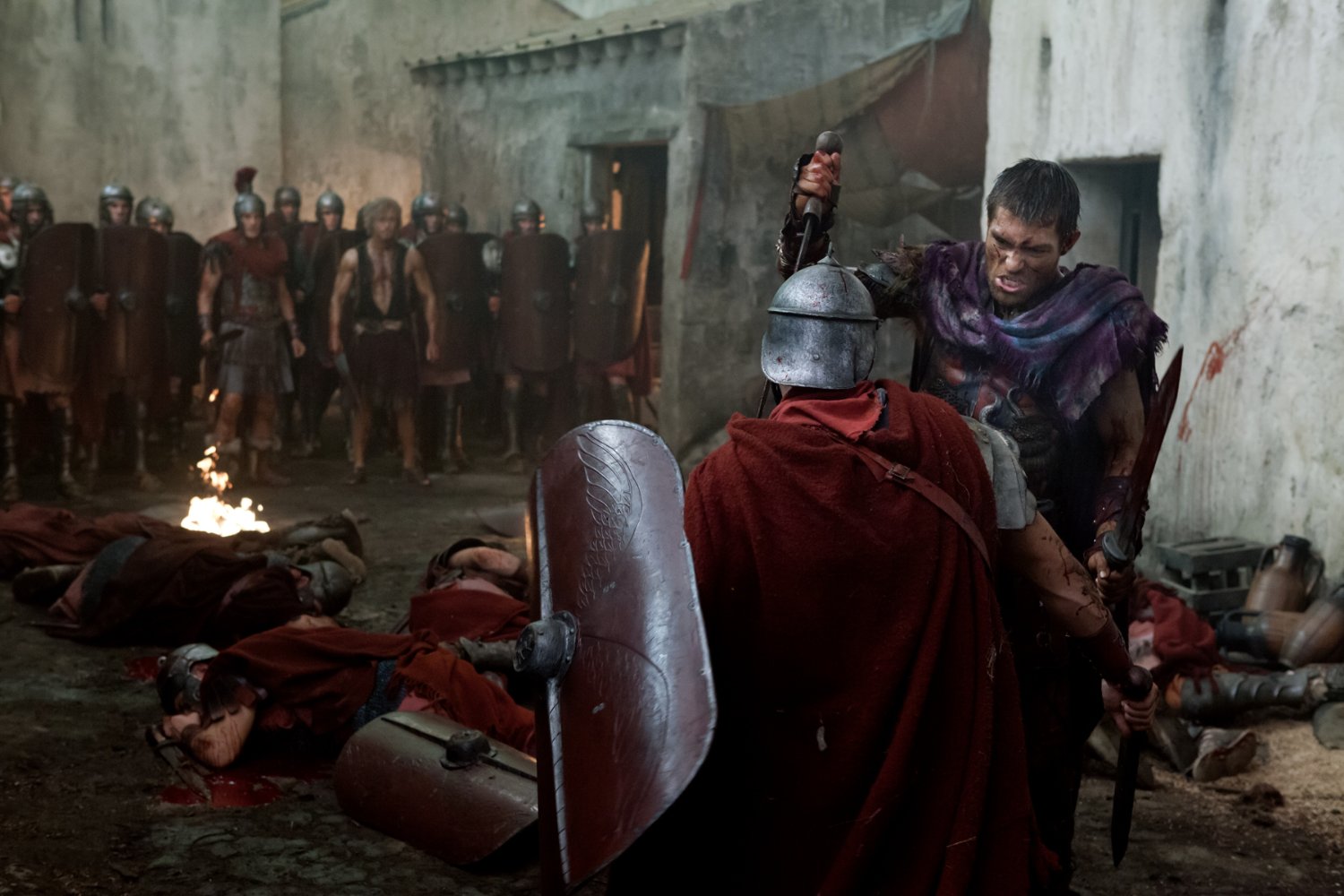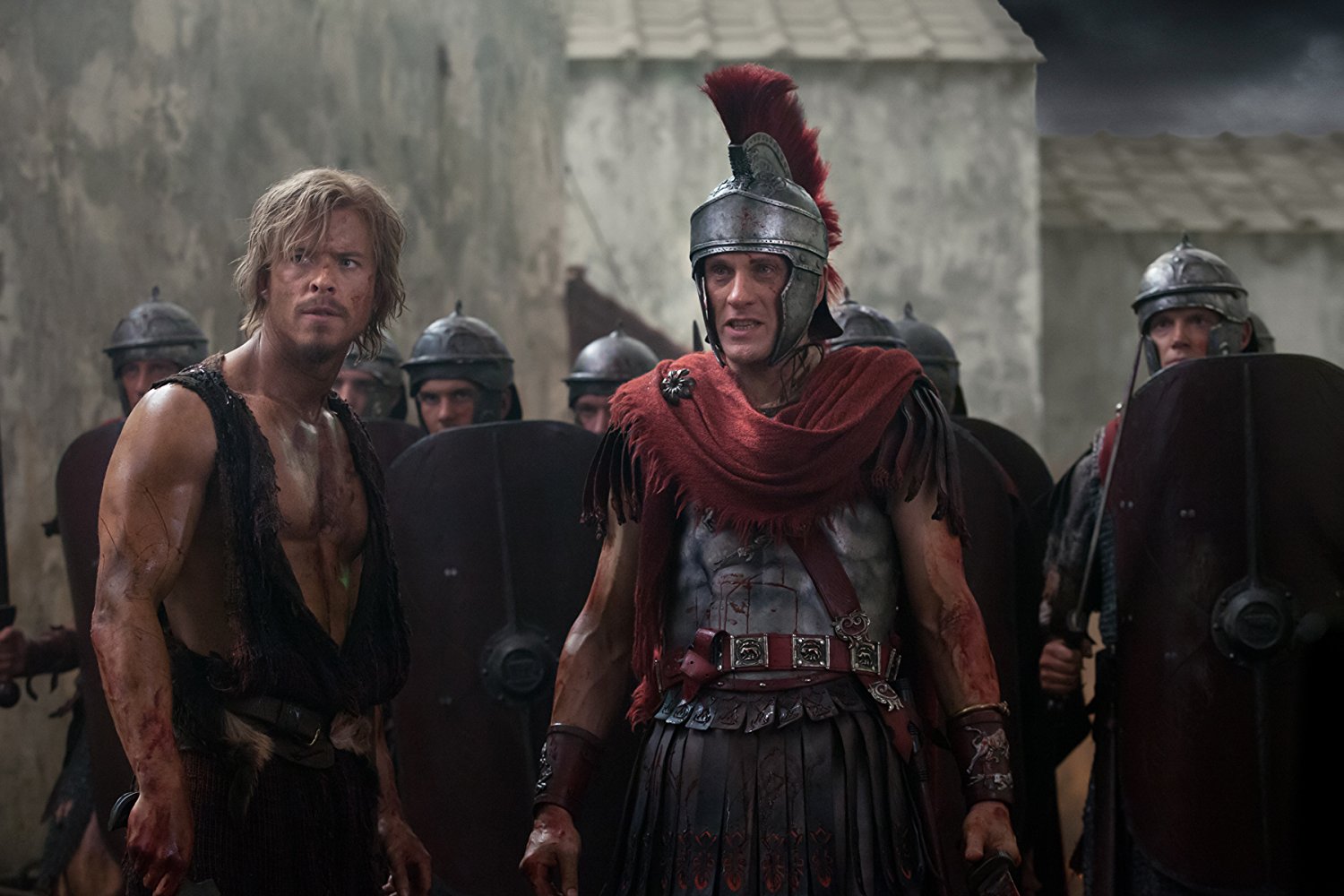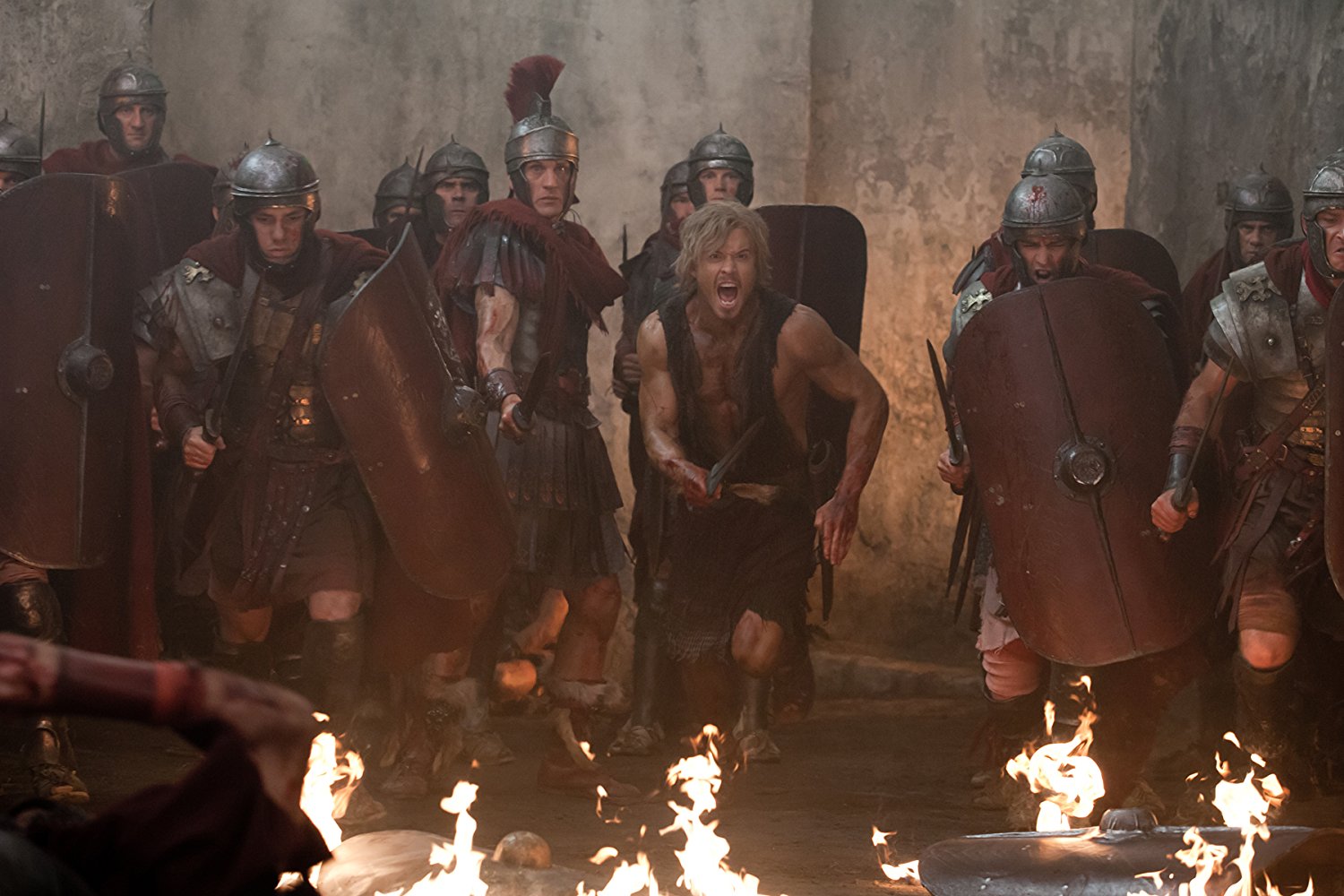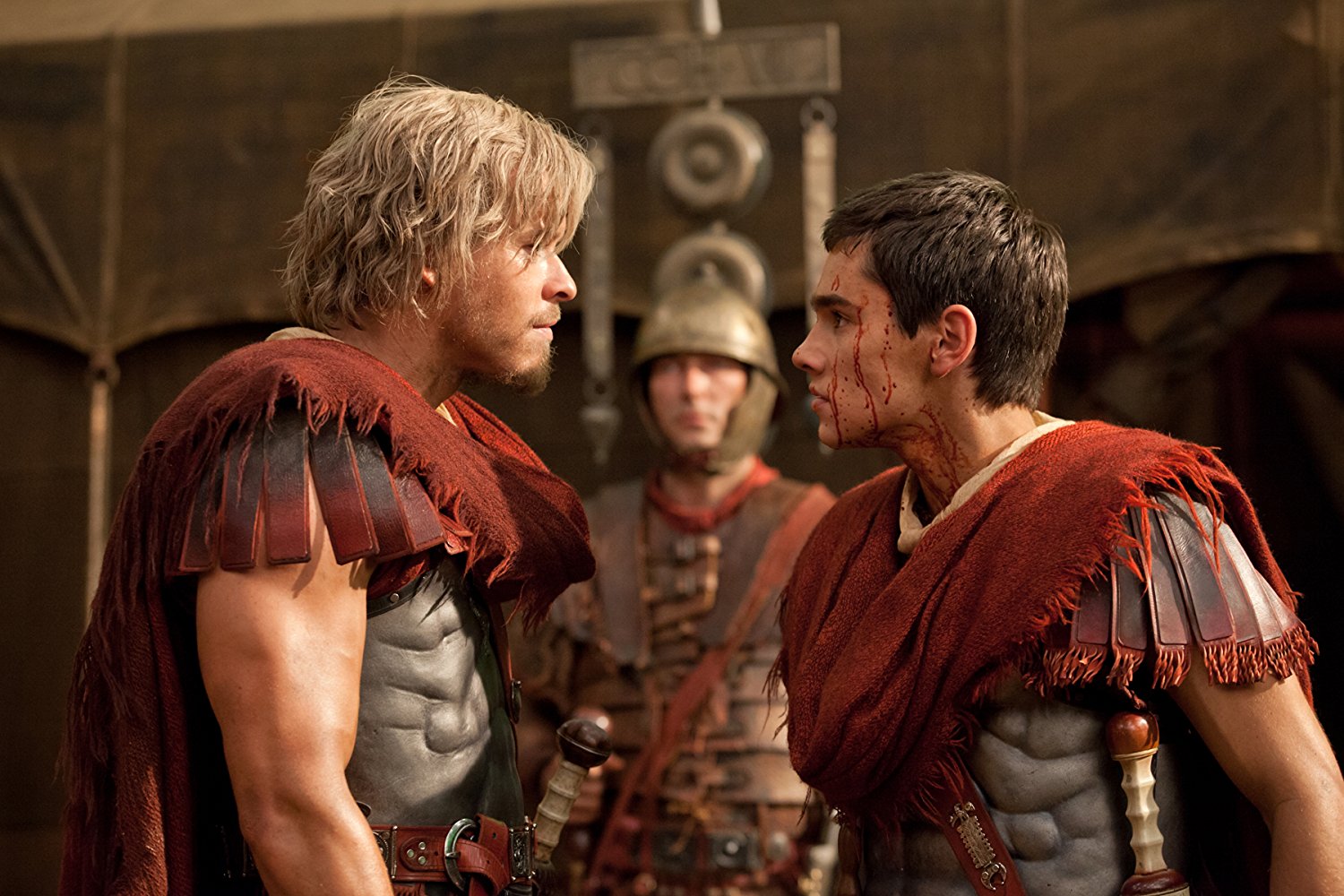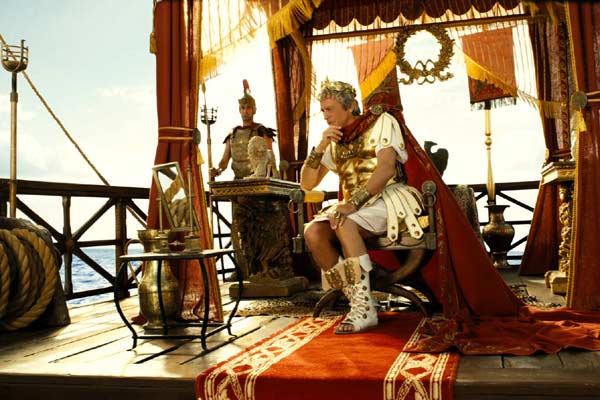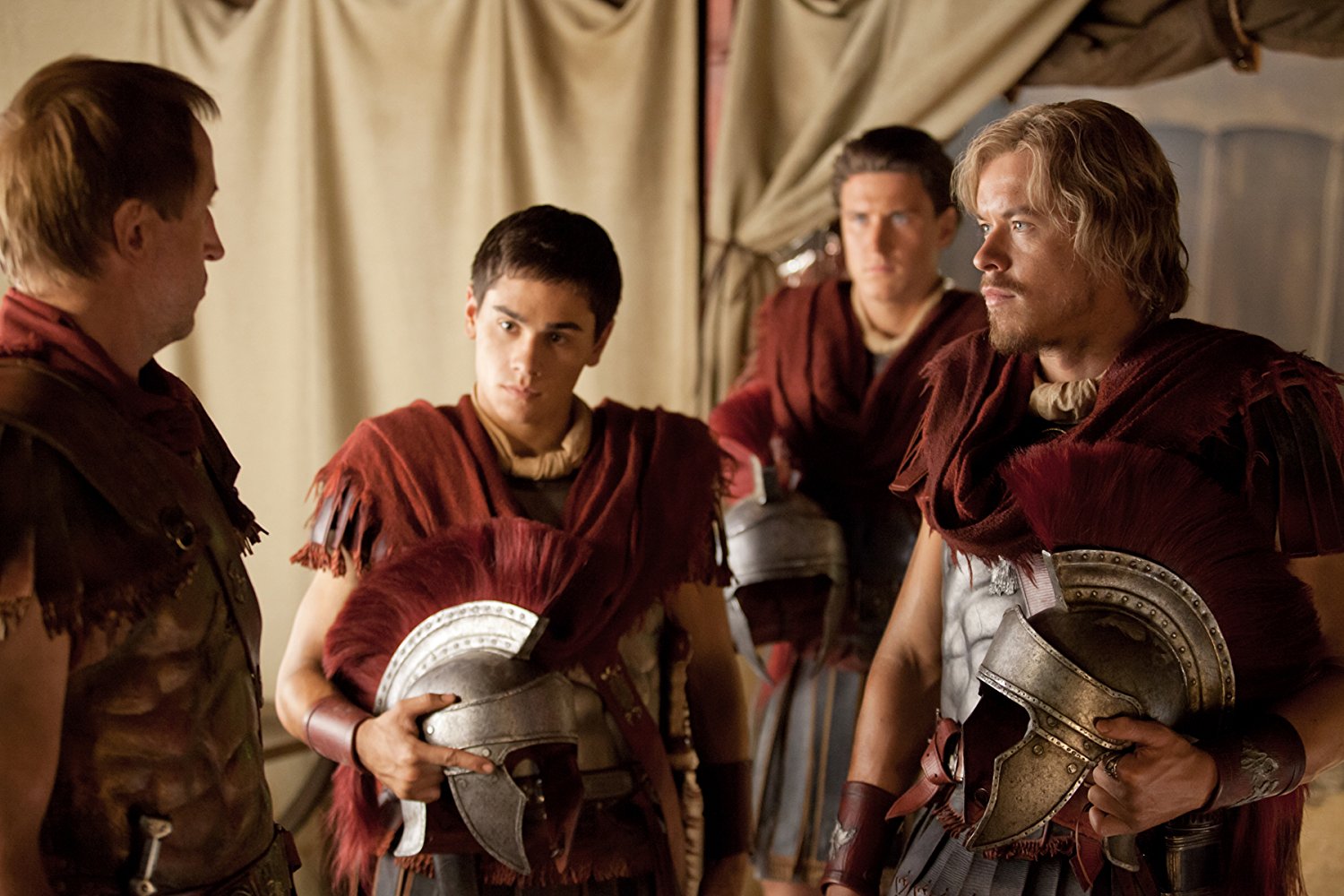Gaius Julius Caesar (100-44 BC) was a Roman statesman and general. He was born to the gens of the Julii, who claimed descent from Aeneas, and through him the goddess Venus. Despite their Patrician status and this divine ancestry, they were a largely unaccomplished lot.During the brief dictatorship of Sulla of 82-81 BC, Caesar, as the son-in-law of Cinna (one of Sulla's political enemies), became one of many (many, many, many, many) condemned men. However, through the pleading of Caesar's relatives (many of whom were supporters of Sulla) Sulla was convinced to pardon Caesar and let him live, although Sulla would later state in his memoirs that he regretted allowing him to live, citing that he saw many a Marius in that young man. Much later, Caesar would enter into a secret political alliance known as the First Triumvirate with the two most powerful and influential men in Rome: Marcus Licinius Crassus, and Gnaius Pompeius. It was through this alliance that Caesar managed to gain the commission as governor of Gaul.In the province of Gaul (which at that time included only the southernmost area of what today is France), Caesar observed that a tribe known as the Helvetii were mobilizing in order to migrate through the territory of one of Rome's client tribes. Caesar ordered them not to, and when they refused, this became Caesar's pretext for a campaign of conquest throughout all of Gaul (to protect Rome's client tribes). This campaign would be known as the Gallic Wars (58-51 BC), through which Caesar would conquer all of Gaul, and would gain a fortune in gold and popularity.With the death of Crassus in 53 BC (in his ill-advised Parthian expedition), and the death of Caesar's daughter in 54 BC (who he had married to Pompey), the First Triumvirate fell apart. While Caesar continued to gain wealth and popularity, Pompey sat in Rome, with his past glories fading. Caesar more and more became the one man who's prowess and ambition the Senate feared most. The Senate declared Caesar's war in Gaul to be illegal, and demanded he return home to face trial. Caesar instead marched his army with surprising speed into Italy toward Rome. Caesar moved so swiftly that Pompey and the Senate were unable to mobilize their own troops in time to counter him, and were forced to flee to Spain, where the bulk of Pompey's legions were stationed, leaving Rome to Caesar. Caesar established his own order in the city, and put his general, Marcus Antonius, in charge of administration while Caesar himself pursued Pompey in Spain.What ensued was a civil war that saw Caesar's army engage the army of the Senate led by Pompey from end of the empire to the other. Caesar maintained the upper hand through most of the conflict until his pursuit of Pompey's army brought him to Greece. He soon found himself penned in, outnumbered and without provisions near Pharsalus in 48 BC. The senators, not content to starve out Caesar, chose to attack, giving Caesar the opportunity to fight back, and, with his brilliant mind for tactics and his battle hardened troops, he managed to rout his numerically superior and better supplied enemies.Caesar had delivered a crushing defeat to Pompey at the Battle of Pharsalus, and Pompey was forced to flee and attempt to raise another army. He chose to go to Egypt, where he hoped to find hospitality and the money to raise more legions. Instead, he found Egypt in a dynastic crisis. Young Ptolemy IV (under the thumb of his advisors) had usurped total control from his older sister, Cleopatra VII, who was forced to flee the country. They were in a precarious position already, and needed to earn the friendship of Rome. In a bid to impress the clear victor of the civil war, they murdered Pompey. When Caesar arrived in pursuit, he was presented with the head of Pompey. Caesar was not impressed. He reacted angrily with Ptolemy, and gave the head a proper Roman funeral, performing the rites himself.Caesar stayed on in Egypt to arbitrate the dispute between Ptolemy and Cleopatra. While he was staying in the palace, Cleopatra returned to Egypt in secret, and snuck in to the palace and came to Caesar. Caesar began an affair with her, and she became pregnant. Ptolemy's armies stormed the palace, but Caesar, with only two legions managed to repell them. Caesar then executed Ptolemy's advisors, and had Ptolemy himself banished to the Levant where he was captured and executed by agents of King Mithridates of Pontus.Caesar returned to Rome, where he was declared Dictator for Life, an unprecidented position (dictators could be appointed in times of emergency to deal with a specific problem, but were to relinquish their authority once the crisis had been resolved). This looked far too much like kingship to avoid offending Roman sensibilities. A conspiracy formed around Brutus and Cassius, and these men stabbed Caesar to death while he was in the Senate house on the Ides of March (March 15) in the year 44 BC.In his will, Caesar adopted his grand-nephew, Gaius Octavius Thurinus, who was 19 years old at the time, but who had accompanied Caesar in his civil war, and had apparently made a very good impression on Caesar. What followed was another round of civil wars, in which Octavius Caesar and Marc Antony first teamed up to defeat the armies of Brutus and Cassius, and then after dividing the empire, Octavius and Antony turned on each other. Octavius (better known to posterity as Augustus ) emerged from this final civil war as the sole victor, and established himself as the first emperor of Rome.
Show less «



